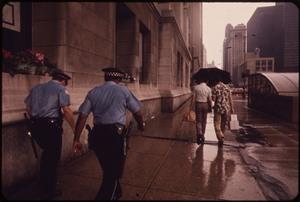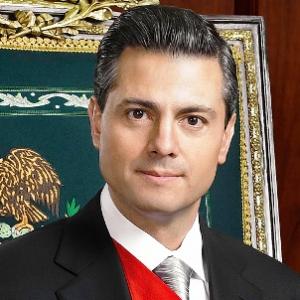The land of the maple leaf is about to become the land of the marijuana leaf, too.
Police perjuring themselves to prosecute the drug war is nothing new, but managing to nail them for it is remarkable. Joseph Sperling did just that.
On Bicycle Day, psychonauts celebrated the discovery of LSD in the very shadow of United Nations headquarters and called for psychedelic freedom.
The DEA approves a PTSD medical marijuana study, a Senate committee votes to rein in the DEA on medical marijuana, a Utah poll has very strong support for medical marijuana, and more.
Another jail guard in trouble, an Ohio narc heads to prison, and so does a veteran Alabama cop.
Marijuana policy is keeping state houses busy in New England, Nebraska becomes the 10th state to end civil asset forfeiture, Maine's Tea Party governor vetoes a Naloxone bill, Mexico's president expands marijuana reforms, and more.
DC marijuana activists scored a White House meeting, Montana medical marijuana patients catch a temporary break, hemp states could be protected from federal interference, Canada just says no to decrim ahead of marijuana legalization next year, and more.
Americans spent a lot of money on weed for 4/20, Dana Rohrabacher endorses California's AUMU marijuana legalization initiative, New Hampshire decrim rises from the dead, and more.
This article was produced in collaboration with AlterNet and first appeared here.
Canadian Prime Minister Justin Trudeau, elected last fall, campaigned on a promise that his Liberal government would legalize marijuana. Now, we're getting an idea of just when that is going to happen.
Speaking at the
UN General Assembly Special Session (UNGASS) on the World Drug Problem Wednesday, Canadian Health Minister Jane
Philpott said the government will introduce legislation to legalize and regulate marijuana in spring 2017.
"Our approach to drugs must be comprehensive, collaborative, and compassionate. It must respect human rights while promoting shared responsibility. And it must have a firm scientific foundation. In Canada, we will apply those principles with regard to marijuana," she said.
"To that end, we will introduce legislation [to legally regulate marijuana] in spring 2017 that ensures we keep marijuana out of the hands of children and the profits out of the hands of criminals. While this plan challenges the status quo in many countries, we are convinced it is the best way to protect our youth while enhancing public safety."
Canada's is a parliamentary system, which generally means that if the government introduces a bill, it becomes law. There could be unforeseen bumps in the road, but it appears all but certain that the land of the maple leaf is soon going to become the land of the pot leaf, too.
In the meantime, government officials, including legalization point man former Toronto Police Chief Bill Blair, are emphasizing that until the law changes, marijuana remains illegal except for medicinal purposes. After a Canadian Supreme Court decision in March, medical marijuana users will be able to grow their own, a right that was taken away by the previous Conservative government.
But within a couple of years, any adult Canadian should be able to join them.
back to top
Part 10 of an occasional series on police and prosecutorial misconduct by Clarence Walker, [email protected].
It was just another marijuana bust by Chicago's crack dope squad and should have resulted in an easy conviction, but thanks to a forgotten camera, things didn't exactly work out the way the cops planned. Now, the pot dealer is free, he has a bunch of cash in pocket, and it's the cops who are facing justice.
It went down on June 6, 2013, when three Chicago Police narcotics officer and a pair of suburban Glenview police officers pulled over Joseph
Sperling on the pretext that he had failed to properly use his turn signal, then claimed
Sperling told them there were drugs in his vehicle. The cops said they found marijuana in plain view and arrested
Sperling on marijuana possession and distribution charges. Business as usual, so far.
But when it came time to go to court the following March, things went south for the cops. Prosecutors had been questioning Chicago PD narcotics officer William Pruente, who said in sworn testimony that when police pulled over Sperling they immediately smelled marijuana and ordered him to exit the vehicle and stand at the rear of the car.
Then, defense attorney Steven Goldman asked the veteran narc if Sperling was handcuffed after he got out of the car.
"No, he was not handcuffed," Pruente replied. "He was not under arrest at that time."
Chicago narcotic officers Sergeant James Padar and Vince Morgan and Glenview Police officers James Horn and Sergeant Theresa Urbanowski backed up Pruente's story.
Then, as Urbanowski was testifying, defense attorney Goldman dropped a bombshell. He interrupted the testimony to inform Judge Catherine Haberkorn that he needed to offer a videotape into evidence.
In a moment of courtroom drama like something out of "Law and Order," Goldman revealed that the video came from Urbanowski's police cruiser and that it flatly contradicted the sworn testimony of the police officers. The police had been lying to the court and to the judge and the video would prove it, Goldman said.
As Goldman patiently took Urbanowski back over the events she'd testified about, he played the recording and asked her to describe the difference between her original testimony and what was happening on the tape.
The footage contradicted the testimony of the police officers. Pruente had testified that Sperling had not been arrested or handcuffed until the cops had found the dope in plain view, but the video showed Pruente walking up to Sperling's car, reaching in the open window, unlocking the door, pulling Sperling out, handcuffing him, and placing him in the back seat of a patrol car. Only then did the officers move to search the car.
The video clearly showed the officers spending minutes thoroughly searching Sperling's car before finding weed and a small amount of psychedelic mushrooms in a black duffel bag.
As defense attorney Goldman noted during questioning, if the drugs had really been in plain view on the front seat of the vehicle, the officers had no need or reason to search it because they already had the drugs.
The brazen distance between the officers' testimony and what the video revealed infuriated Judge Haberkorn, who immediately granted Goldman's motion to suppress the evidence because the video showed police had neither probable cause to arrest Sperling nor a warrant to search his vehicle.
"This is very outrageous conduct," Haberkorn said from the bench. "All the officers lied on the stand today. All their testimony is a lie. There is strong evidence it was a conspiracy to lie in this case, for everyone to come up with the same lie."
Haberkorn then dismissed the criminal charges against Sperling.
"If this could happen to me, it could happen to anyone," said Sperling, then 23, during a press conference with reporters after the release of his videotaped arrest. "I just happen to be one of the lucky few that had a video that proved the officers were wrong."
The Cook County criminal justice system may have been done with Sperling, but he wasn't done with it. Shortly after the charges were dismissed, he filed a federal civil rights lawsuit alleging illegal search and seizure against the Chicago and Glenview police departments. And he won. The two cities involved settled the suit, paying Sperling $195,000 for his troubles.
Others who have been similarly victimized could do the same. Under the US Code Section 1983, citizens are allowed to sue police in federal court as a result of an illegal search and arrest if the officer acted with malice "under color of law."
In Sperling's case, attorney John Loevy argued in the lawsuit that there was insufficient legal justification for officers to stop and arrest Sperling and search his vehicle, which was done without probable cause. Those illegal actions violated Sperling's civil rights under the Fourth, Fifth, and Fourteenth amendments, as prescribed under Section 18 US Code 242. The argument was strong enough to force the cities to settle.

Cook County State's Attorney Anita Alvarez (twitter.com)
Former Houston Police homicide and narcotic gang investigator Rick Moreno told
Drug War Chronicle the officers lied to protect an informant when they could simply have gone by the book and done their bust right.
"Once those officers had all the information about this guy having dope in his car they needed a warrant," Moreno explained.
But the narcs plotted a scheme disguised as a routine traffic stop to avoid having to obtain one.
"What they've done in this case was a 'wall off' technique." Moreno said, referring to a strategy most narcotic officers use to put a wall between the officer and the information provided by a snitch. And if everything goes as planned, the officer gets the dope without a warrant, they got the dope dealer and the snitch is protected."
"The biggest casualty in the war on drugs is the truth," said Chicago civil attorney Jon Loevy, who represented Sperling in his civil rights lawsuit.
"The ends justify the means," said criminal defense attorney Goldman, explaining the attitudes that drove the cops to lie on the stand. "So because they get the bad guy off the street or the drugs out of their hands, everybody's happy."
Well, not everybody, not when the lies are so blatant they cannot be ignored. The Cook County criminal justice system wasn't done with the cops caught lying on the witness stand. Sgt. Urbanowski's camera had caught them red-handed, and four of them were indicted by a Cook County grand jury on perjury, obstruction of justice, and official misconduct charges in June 2015. They all face up to five years in prison on each count. The three Chicago police officers were immediately suspended, and the Glenview police officer was later fired. Their trials got underway this week.
"The foundation of our criminal justice system rests on the concept of truthful testimony," said Cook County States' Attorney Anita Alvarez in a press statement announcing the indictments. "We expect it from our witnesses and we demand it from our police officers."
The criminal charges filed against the officers made headlines across the state and constituted another black mark against the much criticized Chicago Police Department. But the buzz around the courthouse was not just over the charges, but whether they would lead to the dismissal of other drug cases in which the charged cops were involved.
Calls to the Cook County prosecutor's office regarding whether the four indicted officers would be investigated for perjury or illegal tactics in previous drug cases have not been returned.
While Sperling won $195,000 in damages from his illegal search and seizure lawsuit, legal experts say such victories are rare. Defendants usually don't pursue such suits due to lack of funds, and if a case involving a bad search is dismissed, most defendants are just relieved the case is over and they no longer face charges, said Penn State University law professor David Rudovsky, a leading civil rights and criminal defense attorney and author of The Law of Arrest, Search, and Seizure.

Penn State law professor David Rudovsky (law.penn.edu)
told
Drug War Chronicle there is also another reason such lawsuits are rare.
"Why would a jury award money for damages to a criminal already proven to have committed a crime?" he asked rhetorically.
Police perjury is nothing new -- the practice has even generated its own nickname, "testilying" -- but the Sperling case has renewed debate over why law enforcers resort to breaking the law.
"Police perjury in court to justify illegal dope searches is commonplace," wrote former San Francisco police commissioner Peter Keane in a much-cited article on the topic.
"I've heard some police officers say in a social setting, 'If [the defendant] is going to lie to beat the case, why can't I lie too?" Cook County Public Defender, and former prosecutor Abishi Cunningham Jr. related.
"When police lie to make a case on someone they are saying the criminal justice system doesn't work... so I'm going to do it my way," Houston civil and criminal attorney Annie Briscoe told the Chronicle.
Briscoe recalled a drug case involving police illegal search where police recovered a sizeable amount of drugs from a client of hers. Houston police claimed he resembled a fugitive they were looking for. With her client facing up to life in prison, Briscoe convinced the trial judge to throw out the charge because of illegal search and seizure through the simple expedient of showing the judge a photo of the fugitive, who looked nothing like her client.
While the judge called Briscoe's client "one lucky guy," Briscoe had a slightly different take.
"The law should be enforceable by way of truth," she said.
Police are also incentivized by the war on drugs to cut corners so they can reap monetary rewards, whether through asset forfeiture or by earning federal anti-drug grants through aggressive enforcement actions. And each bust makes their numbers look better.
As NYPD Officer Adil Polanco once revealed through a surfeit of honesty, "Our primary job is not to assist anybody, our primary job is to get those numbers and come back with them. You have to write somebody, arrest somebody, even if the crime is not committed, the number is there."
Yes, there are numerous reasons cops lie. But none of them justify the lying, or the corrosive effect such behavior has on public trust and respect for law enforcement. These Chicago police officers are about to find out just how seriously the system takes such dishonesty, especially when it is so blatant the system can't pretend it doesn't see it.
back to top
This article was produced in collaboration with AlterNet and first appeared here.
This year's United Nations General Assembly Special Session (UNGASS) on Drugs is notable for the increasing inclusion of non-governmental voices, with civil society being represented for the first time within the session itself. In this case, civil society refers to non-governmental organizations, most of which seem to oppose the existing international drug prohibition regime.
But as the UNGASS proceeds this week, civil society is making itself heard not only inside the UN, but outside the formal structures of the meeting, too. At Dag Hammarskjold Plaza, in the very shadow of UN headquarters, demonstrators are showing up daily to promote a variety of drug reform-related causes.On Monday, the Latin American Caravan for Peace, Life and Justice, Students for Sensible Drug Policy (SSDP), and Moms United -- a group in which many members have lost children to prison, violence, or drug overdoses -- rallied hundreds of people to call for repealing global drug prohibition. On Wednesday, April 20, the cannabis culture contingent was out in force to call for marijuana legalization.
But the demonstration on Tuesday, April 19, was to promote a slightly more esoteric position: support for access to psychedelic drugs. The date is known by psychonauts as Bicycle Day, to commemorate April 19, 1943, the date Swiss chemist Albert Hofmann intentionally ingested his new creation, LSD-25, took off for home on his bicycle, and began tripping brains, inaugurating the modern psychedelic era.
The ride was a bit bumpy, with Hofmann reporting wavering vision, a sense of motionless, and a "weird, unfamiliar world." But it got better, as he wrote in his notes on the hallucinogenic trip:
Now, little by little I could begin to enjoy the unprecedented colors and plays of shapes that persisted behind my closed eyes. Kaleidoscopic, fantastic images surged in on me, alternating, variegated, opening and then closing themselves in circles and spirals, exploding in colored fountains, rearranging and hybridizing themselves in constant flux.
Welcome to the psychedelic age. Between then and the late 1960s, LSD was the subject of much fascinating and provocative research, especially on its therapeutic uses for dealing with issues such as alcoholism, trauma, and depression. But that scientific interest was squelched by the prohibition of the drug (and its insertion into Schedule I of the Controlled Substances Act in the US) after its use spread from scientific and research circles into the population at large, especially the hippies.
Still, interest in LSD and other psychedelics never went away, and now the mind-altering substances are making a comeback, both in the research community and in popular culture. Earlier this month, scientists examined the brains of people on acid using cutting-edge nuero-imaging techniques to show exactly what LSD does in the human brain. And further research on LSD and other psychedelics for therapeutic purposes is ongoing.
But the people in the plaza on Tuesday were, for the most part, not scientists and researchers but enthusiasts and psychedelic explorers. Led by Psymposia and the Psychedelic Society of Brooklyn (one of at least 50 city-based such societies around the world), they took on the question of why use, support, or call for the legalization of the consciousness-changing drugs by providing their own answers under the format of "Psychedelics Because…"
"The science has been there for 50 years, but that doesn't change hearts and minds," began event MC Lex Pelger as he urged a popular push for psychedelic acceptance. "When used properly and with intention, these drugs can be tremendously beneficial," he added, citing the recent (and not so recent) research on their therapeutic potential.
Pelger urged others in the audience to share their own stories, and they did.
"I was seriously depressed and then did iboga and cured myself," said someone identifying himself as Rainbow Star Guide. "Eat the plants!"
Another speaker, also citing problems with depression, said that he used ayahuasca to break free.
"It gave me a feeling of happiness, energy, and contentment," he said. "Think about the influence that psychedelic culture could have. These substances can open us up to try to build a better world, to save the world."
"The war on drugs is stealing happiness from the world!" interjected Pelger.
"Psychedelics can help shake you free of your shit," said another speaker, who identified as a shamanic practitioner who worked with ayahuasca, before playing a trippy ode to the powerful herbal concoction on a very strange drum-like instrument.
A young man who identified himself as a Muslim described his confusion and alienation growing up in the faith in America in the post-9/11 era. He told how he ate magic mushrooms at age 16 in a search for spiritual direction.
"That offered me the resilience and the head space to develop my own framework," he said.
Not everyone claimed profound, life-changing reasons for using psychedelics.
"Psychedelics because they make the music sound great and because my head doesn't belong to the state," said a long-haired man who appeared old enough to have melted his mind listening to Jimi Hendrix.
Some psychedelic researchers were present, including Neil Goldsmith, a psychotherapist and author of Psychedelic Healing: Entheogens for Psychotherapy and Spiritual Development.
"Psychedelics enhanced my practice by illuminating my insides," he said. "I do them and bring that insight and wisdom to my practice. Psychedelics should be permitted as an adjunct to psychotherapy," Goldsmith added.
Psychedelic science, medicine, and culture is undergoing a renaissance. It's breaking out all over, including this week in the shadows of UN headquarters. The nations of the world may not be listening yet, but the clamor is growing louder.
back to top
The DEA approves a PTSD medical marijuana study, a Senate committee votes to rein in the DEA on medical marijuana, a Utah poll has very strong support for medical marijuana, and more.
NationalLast week, the Senate Appropriations Committee voted to prevent the DEA from undermining state medical marijuana laws. The committee voted 21-8 to approve an amendment offered by Senator Mikulski (D-MD) to protect state medical marijuana laws from federal interference by the Department of Justice and Drug Enforcement Administration. After decades of inactivity on marijuana reform, Congress has moved at lightning pace to advance marijuana reform in recent years. Last week the Senate Appropriations Committee voted to allow Veterans Administration doctors to recommend marijuana. The Committee approved similar amendments last year as well as an amendment to allow state-legalized marijuana businesses to access banks and other financial services. The Mikulski amendment is expected to pass the full Senate as well as the House. Similar amendments were passed by Congress last year and the year before.
Last week, DEA approved a Colorado-funded study on marijuana and PTSD. It's the first time the agency has given permission to use raw marijuana in a controlled clinical trial for PTSD. Enrollment in the study could begin as early as next month. The study is one of nine funded by historic grants from the Colorado Health Department, which are in turn funded by medical and legal marijuana fees and tax revenues.
Connecticut
Last week, the House approved medical marijuana for kids. The House voted overwhelmingly last week to expand the state's four-year-old medical marijuana program to include children. The bill also includes a provision to create a Board of Physicians to review requests for new ailments to be added the list of qualifying conditions, which currently lists 17 diseases or syndromes. The bill now goes to the state Senate.
Iowa
On Monday, a href="http://globegazette.com/news/iowa/gop-medical-cannabis-plan-voted-down/article_f665abe6-90a0-58d9-b756-fed6c88a88d8.html" target="_blank">a CBD medical marijuana expansion bill was killed. A Republican-backed bill to expand the number of ailments for which Iowans could use CBD cannabis oil was defeated in the House Monday. Democrats said the proposal did not go far enough, while some Republicans objected to any effort to legalize marijuana, medicinal or otherwise. The bill was defeated 61-36.
Montana
On Monday, the state Supreme Court delayed enforcement of its medical marijuana rollback. The state high court said it will delay enforcement of its February ruling dramatically rolling back the state's medical marijuana program. The court said its ruling would now not go into effect until August 31. Montana activists and medical marijuana industry spokesman have said the rollback would force the closure of dispensaries and leave patients in the lurch. Supporters are also working on an initiative campaign to put a revamped medical marijuana system before the voters in November.
Utah
On Wednesday, a new poll found strong support for medical marijuana. A new Utah Policy poll has two out of three (66%) of Utahns in favor of medical marijuana, with only 28% opposed. The poll comes after the legislature failed to pass a medical marijuana bill this year. If the legislators are listening to their constituents, they will pass it next year.
back to top
Another jail guard in trouble, an Ohio narc heads to prison, and so does a veteran Alabama cop. Let's get to it:
In Live Oak, Florida, a county jail guard was arrested last Wednesday on charges he was selling smuggled cigarettes, synthetic cannabinoids, and cellphones to inmates at the Suwannee Correctional Institution. Michael Dale Lindblade, 28, is charged with official misconduct, unlawful compensation, and removal of contraband. At last report, he was being booked into his now former place of employment.
In Akron, Ohio, a former East Cleveland narcotics detective was sentenced last Wednesday to nearly six years in federal prison after he admitted being part of scheme to rip off thousands of dollars from suspected drug dealers. Antonio Malone, 34, is the third former East Cleveland officer to go down in the corruption case in the street crimes unit. The officers conducted illegal searches and falsified search warrants while stealing from suspects. Malone pleaded guilty to one count of conspiracy.
In Huntsville, Alabama, a former Huntsville police officer was sentenced Tuesday to two years in federal prison for bribing a rookie cop to drop drug trafficking charges against an accused dealer. Lewis Bernard Hall went down after the rookie reported the bribe, starting a city and FBI investigation. The rookie also got shorted on the bribe money by Hall and the drug dealer. Hall copped to one count of conspiracy and must report to prison next month.
back to top
Marijuana policy is keeping state houses busy in New England, Nebraska becomes the 10th state to end civil asset forfeiture, Maine's Tea Party governor vetoes a Naloxone bill, Mexico's president expands marijuana reforms, and more.
Marijuana PolicyDC Marijuana Activists Meet Today With White House. Two members of the DC Cannabis Campaign (DCMJ) were set to meet with Obama administration officials at the White House today. DCMJ head Adam Eidinger said he had been requesting a "Bud Summit" with Obama's leading drug advisors for years, but had no response until his group demonstrated in front of the White House on April 2. "This is an opportunity for the White House to meet with serious and committed cannabis activists and hear our case for why it's in President Obama's best interest to work with the attorney general to fully remove cannabis from the Controlled Substances Act," DCMJ co-founder Nikolas Schiller said in a statement.
Connecticut Legalization Bill Dies. There will be no marijuana legalization in Connecticut this year. Rep. Juan Candelaria (D-New Haven), sponsor of the legalization bill, withdrew it last Wednesday after first attempting to add it as an amendment to a related bill. The bill had been declared dead earlier in the session, and Candelaria's move last week was a last ditch effort to keep it alive.
Illinois Decriminalization Bill Advances. A bill that would decriminalize the possession of up to 10 grams of marijuana was approved by the Senate last week. A similar measure was approved by the legislature last year, only to be vetoed by Gov. Bruce Rauner (R). This year's bill lowers the decrim limit from 15 grams to 10 grams, making it a bit more palatable to the governor. A spokesman for Rauner said he was "encouraged" that legislators heard his concerns and would be monitoring the bill's progress. The bill now goes to the House.
New Hampshire Decriminalization Bill Dies. The Senate voted last week to kill House Bill 1631, which would have decriminalized the possession of up to half an ounce of marijuana. This is the seventh time the House has approved decriminalization, only to see it shot down by the Senate. New Hampshire is the only state in New England that has not decriminalized small time pot possession. This year, the legislation ran up against concern over heroin and prescription opioid abuse. "We are in a war, and the last thing we need is to tell our citizens it is OK to use a little marijuana or any other illegal substance," said Sen. Gary Daniels (R-Milford).
Rhode Island Poll Has Support for Legalization at 55%. A new Brown University Taubman Center for American Politics and Policy poll has two-thirds (67%) supporting medical marijuana and a solid majority (55%) in favor of marijuana legalization. This as a legalization bill has been stalled this year. "I know public officials are being very thoughtful and careful on this issue," pollster James Morone said. "But it's hard to see in the long run how legalization won't happen because there is so much strong support among young people. But I would emphasize 'in the long run.' I think anytime you have voters under 44 years old supporting something by 72 percent, it's just a question of time," he added. "Like same-sex marriage around the country, it's being driven by the demographics around the country. It's the exact same dynamic."
Vermont Legalization Bill Amended. The state's legalization bill, Senate Bill 241, faces an uncertain fate after the House Ways and Means Committee approved it, but only after amending it to allow residents to grow and possess small amounts of pot, but not to allow regulated sales. Another House committee had rejected legalization, and a third House committee now has it under consideration. If the House manages to pass some version of the bill, it will have to be reconciled with the version passed earlier by the Senate.
Medical Marijuana
Senate Appropriations Committee Votes to Prevent DEA from Undermining State Medical Marijuana Laws. The committee voted last week 21-8 to approve an amendment offered by Senator Mikulski (D-MD) to protect state medical marijuana laws from federal interference by the Department of Justice and Drug Enforcement Administration. After decades of inactivity on marijuana reform, Congress has moved at lightning pace to advance marijuana reform in recent years. Last week the Senate Appropriations Committee voted to allow Veterans Administration doctors to recommend marijuana. The Committee approved similar amendments last year as well as an amendment to allow state-legalized marijuana businesses to access banks and other financial services. The Mikulski amendment is expected to pass the full Senate as well as the House. Similar amendments were passed by Congress last year and the year before.
DEA Approves Colorado-Funded Study on Marijuana and PTSD. The DEA gave the go-ahead for the ground-breaking study last week. It's the first time the agency has given permission to use raw marijuana in a controlled clinical trial for PTSD. Enrollment in the study could begin as early as next month. The study is one of nine funded by historic grants from the Colorado Health Department, which are in turn funded by medical and legal marijuana fees and tax revenues.
Connecticut House Approves Medical Marijuana for Kids. The House voted overwhelmingly last week to expand the state's four-year-old medical marijuana program to include children. The bill also includes a provision to create a Board of Physicians to review requests for new ailments to be added the list of qualifying conditions, which currently lists 17 diseases or syndromes. The bill now goes to the state Senate.
Asset Forfeiture
Nebraska Latest State to Institute to Abolish Civil Asset Forfeiture. Last week, Gov. Pete Ricketts (R) signed into law LB 1106, which eliminates civil forfeiture in the Cornhusker State. The bill had passed the legislature a week earlier on a vote of 38-6. Nebraska becomes the 10th state to eliminate civil asset forfeiture. Now, if Nebraska cops want to seize cash and property, they must first obtain a criminal conviction. The bill also imposes some limits on state law enforcement participation in the federal "equitable sharing" program, under which police can end run state laws directing where seized assets go by turning the busts over to the feds, who in turn give back 80% of the value of seized goods to the arresting agency.
Harm Reduction
Maine Governor Vetoes Bill Seeking to Increase Access to Life-saving Overdose Antidote Naloxone. Gov. Paul LePage last week vetoed the bill last week, arguing that "naloxone does not truly save lives; it merely extends them until the next overdose." Every state in the nation, with the exception of five, have either passed or are in the process of passing naloxone access legislation, and thirty states currently allow for sales of the overdose antidote without a prescription. The bill, LD 1547, could still be revived, though. On Friday, the legislature will take up all bills vetoed by Le Page, including LD 1547. Two-thirds votes in both the House and the Senate would be needed to override the veto.
International
Mexican President to Push Broader Marijuana Decriminalization, Medical Marijuana. President Enrique Pena Nieto used his speech before the UN General Assembly Special Session (UNGASS) on Drugs last week to call for decriminalizing up to an ounce of marijuana and legalizing the medicinal use of the plant. Currently, only up to five grams is decriminalized. "We Mexicans know all too well the range and the defects of prohibitionist and punitive policies, and of the so-called war on drugs that has prevailed for 40 years," Pena Nieto said. "Our country has suffered, as few have, the ill effects of organized crime tied to drug trafficking. Fortunately, a new consensus is gradually emerging worldwide in favor of reforming drug policies," he said. "A growing number of countries are strenuously combating criminals, but instead of criminalizing consumers, they offer them alternatives and opportunities."
back to top
DC marijuana activists scored a White House meeting, Montana medical marijuana patients catch a temporary break, hemp states could be protected from federal interference, Canada just says no to decrim ahead of pot legalization next year, and more.

A Connecticut bill would provide broader access to the opioid overdose reversal drug naloxone. (wikimedia.org)
White House Staffers Meet With DC Marijuana Activists. Adam Eidinger and Nikolas Schiller of the DC Cannabis Campaign met with White House staffers Monday and urged them to commit the administration to a marijuana policy summit at the White House. They didn't get any answers from the staffers, but Eidinger said they did get "a lot of nods, a lot of smiles."
Nebraska and Oklahoma Try Again to Derail Colorado's Pot Legalization. After being turned away by the US Supreme Court in their bid to overturn marijuana legalization in Colorado, the two neighboring states have asked to be added to another case at the US 10th Circuit Court of Appeals in Denver brought by opponents of legalization. The case consolidates two separate lawsuits brought by a group of county sheriffs and the owners of a rural property, and now, Nebraska and Oklahoma hope it will include them, too.
Medical Marijuana
Iowa CBD Medical Marijuana Expansion Bill Killed. A Republican-backed bill to expand the number of ailments for which Iowans could use CBD cannabis oil was defeated in the House Monday. Democrats said the proposal did not go far enough, while some Republicans objected to any effort to legalize marijuana, medicinal or otherwise. The bill was defeated 61-36.
Montana Supreme Court Delays Enforcement of Medical Marijuana Rollback. The state high court said it will delay enforcement of its February ruling dramatically rolling back the state's medical marijuana program. The court said its ruling would now not go into effect until August 31. Montana activists and medical marijuana industry spokesman have said the rollback would force the closure of dispensaries and leave patients in the lurch. Supporters are also working on an initiative campaign to put a revamped medical marijuana system before the voters in November.
Hemp
Senate Committee Approves Amendment to Block Federal Interference With Hemp. Sens. Jeff Merkley (D-OR) and Ron Wyden (D-OR) offered an amendment to the Senate Commerce, Justice, and Science appropriations bill that would prevent the federal government from interfering with implementation of state hemp laws, and the Appropriations Committee passed it last Friday. More than half the states have laws allowing farmers to cultivate hemp, but they faced the prospect of the DEA taking action against them. That will end if the amendment survives the rest of the appropriations process.
Heroin and Prescription Opioids
Connecticut House Passes Comprehensive Opioid Bill. The House Monday unanimously approved House Bill 5053, which would widen access to the overdose reversal drug naloxone, put a seven-day cap on first-time opioid prescriptions, strengthen the prescription monitoring program, provide a release from liability for Good Samaritans who administer naloxone, and add staffing for emergency medical care and the Alcohol and Drug Policy Council. The bill now goes to the Senate.
Sentencing
California Bill to Reduce Drug Sentences Fails. A bill to repeal sentencing enhancements for certain drug offenses died in the Senate Monday after some senators warned that it would favor drug dealers. The measure, Senate Bill 966, filed by Sen. Holly Mitchell (D-Los Angeles), would have repealed a law that adds three years in prison for people convicted of drug distribution offenses if they have previously been convicted on similar charges. All Republican members voted against it, as did three Democrats, while five more Democrats abstained. The bill lost 18-16.
International
Canada Will Not Decriminalize Marijuana Possession Ahead of Legalization. The Liberal government has made it clear that it will not move to end marijuana possession arrests ahead of its push to legalize marijuana, which it said it will undertake next year. "The current provisions of the CDSA [Controlled Drugs and Substances Act] regarding marijuana will remain in place until they are replaced by new legislation that will legalize and strictly regulate marijuana, Ian McLeod, a spokesperson for the Ministry of Justice, said. "Marijuana will not be decriminalized prior to legalization."
back to top
Americans spent a lot of money on weed for 4/20, Dana Rohrabacher endorses California's AUMU pot legalization initiative, New Hampshire decrim rises from the dead, and more.
Marijuana Policy4/20 Pot Sales Hit $37.5 Million. Americans spent more than $37.5 million on legal marijuana purchases on the 4/20 stoner holiday, according to MJ Freeway, a global cannabis business seed-to-sale tracking software provider. That's up by more than 30% over 2015.
Conservative GOP Congressman Endorses California's AUMA Legalization Initiative. Rep. Dana Rohrabacher (R-Costa Mesa) has announced his support for the Adult Use of Marijuana Act (AUMA) legalization initiative. "As a Republican who believes in individual freedom, limited government and states' rights, I believe that it's time for California to lead the nation and create a safe, legal system for the responsible adult use of marijuana," said Rohrabacher. He is the second California congressman to endorse the initiative. Rep. Ted Lieu (D-Torrance) announced his support last week.
Michigan House Approves Marijuana Drugged Driving Study Bill. The House voted 107-1 Tuesday to approve House Bill 5024, which would create a commission to research and recommend a threshold for THC that would establish evidence of impaired driving. The bill now goes to the Senate.
New Hampshire Decriminalization Reemerges. The decriminalization bill had been killed, but the House Criminal Justice and Public Safety Committee voted 12-7 Tuesday to bring decrim back to life. The committee voted to amend Senate Bill 498, which deals with discretion in sentencing, to make possession of up to a quarter ounce of marijuana a civil infraction instead of a misdemeanor. The bill will come before the House next month.
Medical Marijuana
Utah Poll Finds Strong Support for Medical Marijuana. A new Utah Policy poll has two out of three (66%) of Utahns in favor of medical marijuana, with only 28% opposed. The poll comes after the legislature failed to pass a medical marijuana bill this year. If the legislators are listening to their constituents, they will pass it next year.
Law Enforcement
Family of Florida Man Slain in Marijuana Raid Awarded $500,000. The family of Derek Cruice, who was shot in the face and killed during a small-time marijuana raid in Deltona, Florida, in March 2015, will receive $500,000 in a settlement from Volusia County. Cruice was unarmed when he was shot in his living room by a Deltona police officer. The officer was never charged with a crime.
International
Israeli Police Won't Stop Busting People for Marijuana. Even though a former police commissioner has called for the country's police to reexamine their approach to marijuana in the face of increasing acceptance of its use, police aren't taking up the suggestion. Instead, police have decided that "enforcement policies should continue as they are." One police officer said he needed to be able to bust drug users in order to get at dealers.
back to top









